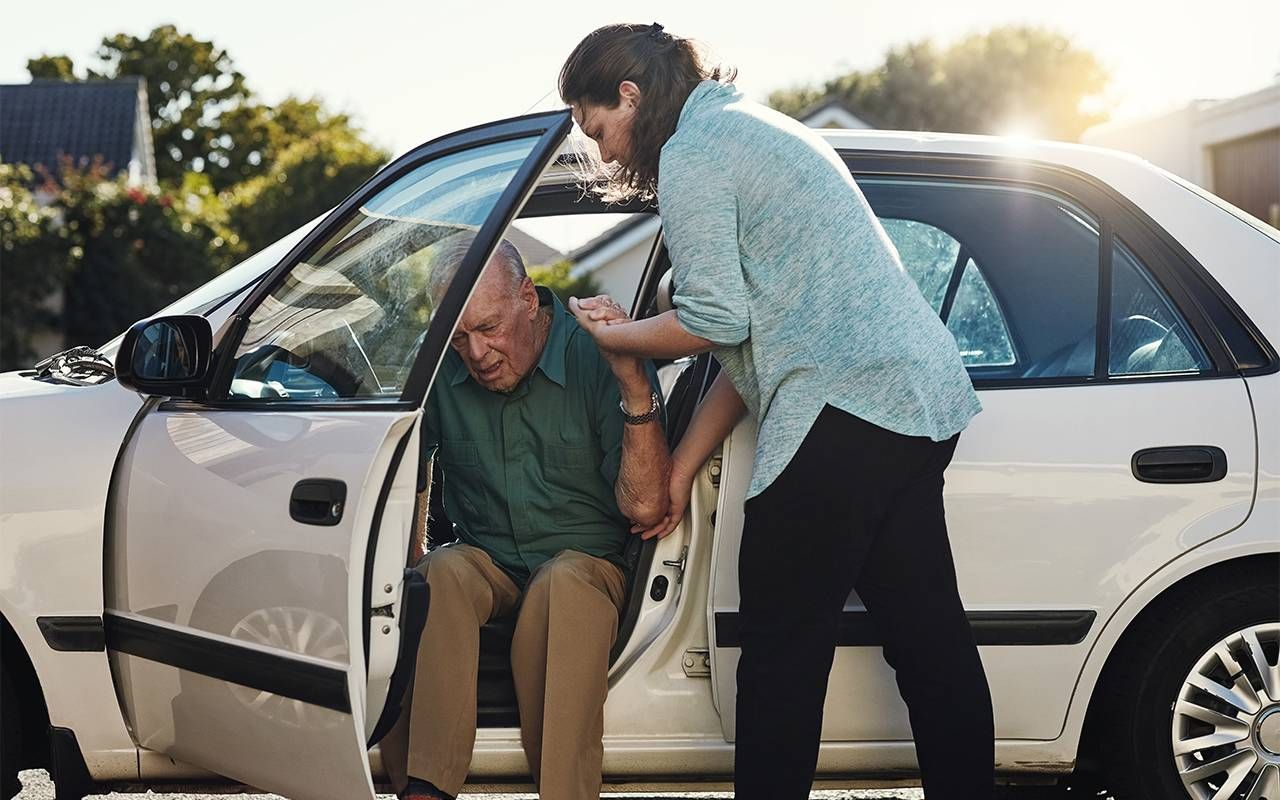For Rural Caregivers, Respite Can Be Hard to Come By
Rural caregivers may be more likely to experience an increase in caregiver burden than urban counterparts
When caregivers in rural Washington County, Maine, look for help to lighten their load, they might have a hard time. Home care aides are in short supply in the smaller communities of the state's eastern region. Adult daycare services can offer caregivers a few hours to run errands or take a break, but the nearest center could be a long journey away for rural residents.

"When you're talking about a two-to-three-hour drive one way, and you're adding that into an already busy schedule, it's just not going to be possible," says Jami Aleksiev, who, as community services director for the Eastern Area Agency on Aging, helps to connect caregivers in four Maine counties with programs that can relieve them.
How to support caregivers outside of America's urban centers is a pressing question. The population in remote areas is growing older. As of 2021, 20% of Americans living in rural regions are over 65, compared to 16% in more urban areas.
As of 2021, 20% of Americans living in rural regions are over 65, compared to 16% in more urban areas.
While stress, isolation and lack of support can be challenges for caregivers who live anywhere, those factors can be exacerbated for people who care for friends and family members in rural communities.
In Maine, which ranks demographically as the oldest and one of the most rural states in the country, older adults' networks in the community are often diminished, explains Lenard Kaye, director of the University of Maine Center on Aging and a professor of social work.
Many young people leave their rural hometowns for bigger cities, often out of state. Unfortunately, that means fewer options when an older person needs care. "Immediately available, locally residing individuals who can assist are at a premium," says Kaye.
"But yet it remains a family affair, putting those who are locally situated under the gun to step up and deliver it under whatever stress and strain they may feel."
Seeking Help at Home
Unpaid caregivers — including family members and friends — provide about 80% of care at home in the U.S. One option that can give those unpaid caregivers a break is to have a professional, like a home care aide, come in to take on some of the tasks, either paid through public programs or out of pocket.
"For some, it is just so rural, there's just nobody around that can travel to where people are."
But in Maine, as across the U.S., there is a strong need for more direct workers. That's true of many rural areas. Nationwide, a 2023 study found 32.9 home health aides for every 1,000 adults 65+ in rural areas, compared to 50.4 for every 1,000 older urban residents.
In Maine, the direct care sector's challenges significantly impact the services available for older adults, people with physical and intellectual disabilities, and more. For example, the state's nursing homes are operating at three-quarters capacity.
In addition, a third of people enrolled in a state program for home care for older adults are either overstaffed or only getting part of the time they're eligible for. For family caregivers in Eastern Maine, location, pay rates and specialized needs — like dementia — can make it hard to find professionals for home care, according to Aleksiev.
Some workers take on jobs knowing they'll have an hour's commute. "For some, it is just so rural, there's just nobody around that can travel to where people are," she says. Even in Maine's more populated areas, the need for more workers is challenging.
Ann Marie Kane, who goes by a.m.k, lives with and cares for her mother in a suburb of Maine's largest city, Portland. She can hire a trained home care worker for 15 hours a week through a program she's enrolled in. But she hasn't been able to find anyone.
"I would love to have somebody," a.m.k says, "and the bigger picture is it would be great for my mom to have somebody hanging out with her that's not me."
In the greater Portland area, a.m.k. says she has found some programs to support her mom, who has a neurological condition. Her mother attends an adult day service and goes indoor rock climbing with Maine Adaptive Sports.
A.m.k. has found connections with fellow caregivers through social media and a support group run by a local agency. But the emotional toll of caregiving is heavy. "It's a really bad double-edged sword because you spend all this time trying to improve their daily life as they're declining," a.m.k. says.
"One of the issues to deal with as a caregiver is that we are live grieving every day, because we're watching our loved ones just lose, every day, a little bit and a little bit more."
Need for Respite
A Canadian study found that though caregivers in rural areas reported having support from community members, they also cope with loneliness and anxiety and have less access to health care and social services. Further, during the COVID-19 pandemic, a survey in the U.S. found that rural caregivers for family and friends were more likely to report a significant increase in caregiver burden than urban counterparts.
Aleksiev says offering caregivers reprieve is one way the agency supports people caring for family members and friends in eastern Maine. EAAA facilitates various programs, including Meals on Wheels, Medicare counseling and caregiver training. Aleksiev says whenever someone reaches out about one of their programs, the agency tries to connect them with other services that suit their situation, including ways to support caregivers.
"Caregiving is a lonely and isolating and disconnecting task and experience, and can drag on for years."
While many people the agency works with are around Bangor, family care specialists reach out to rural residents in any way they can — including visiting vet clinics, town offices and medical facilities to meet community members.
One option that can help caregivers is a new statewide pilot program launched last fall, Respite for ME, which gives eligible caregivers $2,000 to use in a way that will give them a break. In winter, some people used the funds for snow plowing. In the summer, yardwork is popular. The flexibility allows caregivers to get a break, whatever works for them. "Respite looks different for everybody," Aleksiev says.
Kaye of the University of Maine says payment for caregiving services and respite are two of the top needs for rural informal caregivers. His research found that caregiving is a second job for many in rural areas.
A "stiff-upper lip" mentality means they often keep their caregiver roles private. There's often hesitation to share their situation with employers for fear that it can lead to negative consequences. Rural caregivers tend to be lower income, he says, and they often face their own health issues. "Caregiving is a lonely and isolating and disconnecting task and experience, and can drag on for years."
Informal institutions in small communities can be a way to build up a network to support caregivers, he says, drawing on existing rural hubs like churches and synagogues, lunch clubs and community centers. In general, Kaye says, raising awareness about the realities of caregiving among the public more broadly could help more people be prepared for the experience.
Adds Kaye, "We would benefit greatly from more preparation and more appreciation for the complexities and the responsibilities that caregiving gives, such that we don't minimize it and we appreciate the fact that it's likely going to be knocking at each and every one of our doors at some point in our lives."


